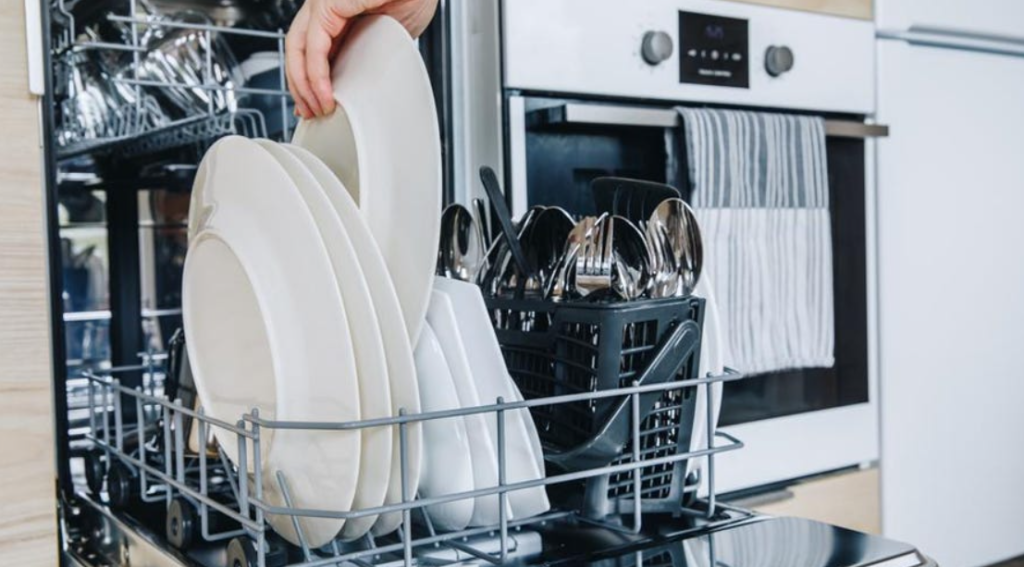Buying a dishwasher can be overwhelming due to the variety of brands, models, and features available in the market. A dishwasher is a kitchen appliance that saves time and effort by washing dishes automatically. It is an essential appliance for any household, especially for those who have a busy lifestyle. A good dishwasher should be reliable, efficient, and easy to use. There are several factors to consider when choosing a dishwasher, including size, capacity, noise level, energy efficiency, and additional features such as wash cycles, drying options, and smart features.

This buying guide will provide you with all the information you need to make an informed decision when buying a dishwasher. By understanding the features and functions of a dishwasher, you can choose the one that meets your specific needs and budget.
What To Know When Considering a Dishwasher?
When considering a dishwasher, there are several factors to keep in mind to ensure you get the best one for your needs. Here are some key things to know:
1. Size and Capacity
When considering the size and capacity of a dishwasher, you should keep in mind the number of people in your household and the amount of dishes you typically wash. Dishwashers come in different sizes, and the capacity is measured in terms of the number of place settings they can hold. Standard dishwashers can hold 12-14 place settings, while compact models can hold around 8-10 place settings. Make sure to choose a size and capacity that meets your needs and fits in your kitchen space.
2. Energy Efficiency
Choosing an energy-efficient dishwasher can save you money on your energy bills and reduce your environmental impact. Look for dishwashers with an ENERGY STAR rating, which means they meet strict energy efficiency guidelines set by the U.S. Environmental Protection Agency. Consider the dishwasher’s estimated annual energy consumption and water usage, and choose a model with the lowest numbers that meets your needs. Energy-efficient dishwashers often have features such as soil sensors and efficient wash arms that help save water and energy.
3. Noise Level
The noise level of a dishwasher is an important consideration, especially if you have an open kitchen or live in a small apartment. Dishwashers typically have a decibel (dB) rating, which measures the noise level. Look for dishwashers with a low decibel rating for quiet operation. Some models have extra insulation and special motors designed to reduce noise, making them ideal for apartments or open-concept homes. Consider a dishwasher with a decibel rating below 50 dB for the quietest operation.
4. Wash Cycles and Drying Options
When choosing a dishwasher, consider the variety of wash cycles and drying options it offers. Most dishwashers come with standard wash cycles, such as normal, heavy, and delicate, while higher-end models may include specialty cycles for items like stemware or baby bottles. Look for a dishwasher with a heated dry option or fan-assisted dry for efficient drying. Some models also include a sanitizing cycle that uses high heat to kill bacteria. Consider which wash cycles and drying options are most important to you and choose a model that meets your needs.
5. Extra Features
Dishwashers can come with various extra features to enhance their functionality and convenience. Some models may include adjustable racks, fold-down tines, and extra spray arms for more efficient cleaning. Look for dishwashers with delay start options, child locks, and touchpad controls for added convenience. Some models also come with built-in water softeners and special filters to remove hard water minerals and food particles. Consider which extra features are important to you and your lifestyle, and choose a dishwasher that meets your needs.
6. Installation and Maintenance
Before purchasing a dishwasher, consider the installation and maintenance requirements. Most dishwashers require professional installation to ensure proper functioning and to maintain your warranty. Additionally, make sure you have the necessary electrical and plumbing connections in your kitchen. Dishwashers also require regular maintenance, including cleaning the filter and spray arms to keep them free of debris. Consider purchasing a dishwasher with a self-cleaning filter and easy-to-remove spray arms for easier maintenance. Make sure to read the manufacturer’s instructions for proper installation and maintenance.
7. Brand and Warranty
When purchasing a dishwasher, consider the brand and the warranty provided. Choose a reputable brand that has a good reputation for quality and reliability. Research online reviews and ask for recommendations from friends and family. Additionally, make sure to choose a dishwasher with a warranty that provides adequate coverage for potential defects and repairs. Look for warranties that cover the cost of parts and labor for a reasonable amount of time, typically between one and two years, and consider purchasing an extended warranty for added peace of mind. Each different brands and models and choose a reputable brand with a good warranty for peace of mind.
By keeping these factors in mind, you can choose a dishwasher that meets your specific needs and budget.
Conclusion
In conclusion, choosing the right dishwasher involves considering several factors, including size and capacity, energy efficiency, noise level, wash cycles and drying options, extra features, installation and maintenance requirements, brand, and warranty. By taking the time to research and compare different models, you can find a dishwasher that fits your needs, budget, and lifestyle. A good dishwasher can save you time and energy, and with proper maintenance, can last for years. Ultimately, investing in a quality dishwasher is a worthwhile investment that can make your life easier and your dishes cleaner.
